The feminine side of graffiti
No strings attached: What the New York Times left out about H-Town guerilla knitter Magda Sayeg

As the street art conversation unfolds, the New York Times has turned its eye to Houston-native Magda Sayeg, who began the movement of placing crocheted creations on public objects. A recent Times article crowns Sayeg as the "mother of yarn bombing" in an article about the feminine side of graffiti.
"This is a moment for me," Sayeg tells CultureMap of the big time press. "There's a lot of things I could be called, so this feels good."
The grandma graffiti technique of covering everything from cars and fire hydrants to entire orchards has fairly humble beginnings. "I didn't have the mission of making this into a global thing," Sayeg says. "It was very unambitious when I started. I wanted to add this human quality to my own world."
That quality began with a simple door handle covering her former Dunlavy Street retail establishment, Raye. The Times article details how she knitted a blue and pink cozy for the handle "on a lark," which she calls, to this day, "Alpha." Soon, a leg warmer appeared on a stop sign down the street. Before long, she had amalgamated other crochet bombers into a crew called Knitta Please.
As photographs of the images exploded online, commissions began streaming in, including jobs from the Blanton Museum of Art, a Christmas sweater for a Toyota Prius and 1970s-inspired sock for a Mini Cooper.
Before her move to the Texas capital and rise to craft stardom, Sayeg was a catalyst of the Houston Montrose '90s coffeehouse scene.
"I started Brasil," the DIY diva told us. "It opened in 1993, and I was there in '94. That's what I did my whole twenties. It used to be sort of just a coffeehouse, and then I came in with this urge to make it into a café. I really put all my creative energy into that. It was really fun — making a carrot cake and selling it to people — that was really cool to me."
Now, Sayeg enlists five assistants who toil on looms in the Austin studio. Her first solo gallery installation was at Rome's Palazzo delle Esposizioni during Il Lusso Essenziale (The Essential Luxury), a festival that celebrated the extraordinary in the everyday.
"For many reasons that was incredible for me," says the 37-year-old artist. "I worked with lighting, wrapping 60 fluorescent tubes in yarn. I got to spend two months in Rome, have great cappuccinos, and pretend I was young again."
Sayeg was so inspired by working with light that she implemented a similar technique for an installation at the 2010 Austin City Limits Music Festival. "Being at the festival and sitting under a piece I created was a moment for me," she says. "I still get a thrill out of the little things I do."
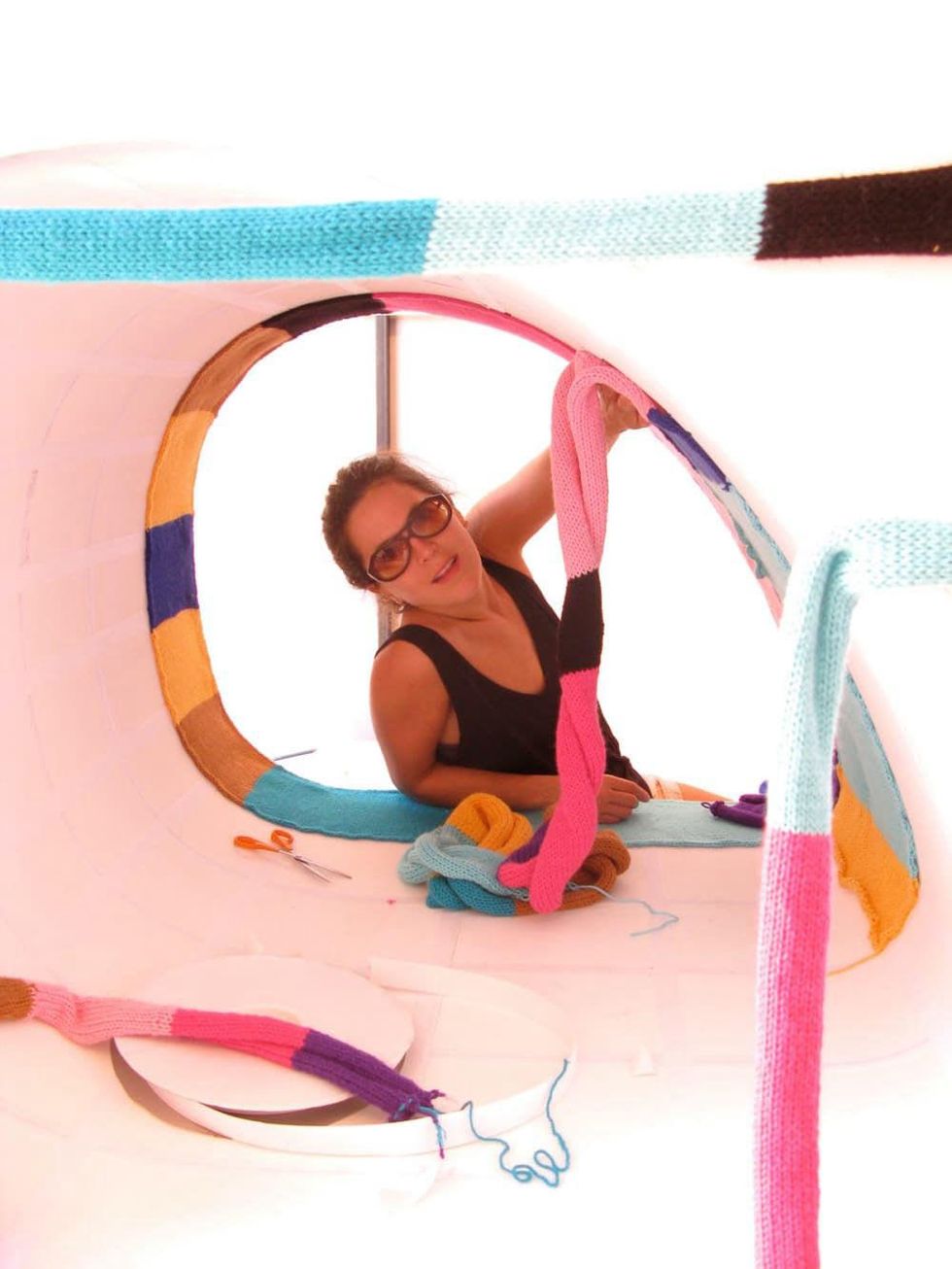
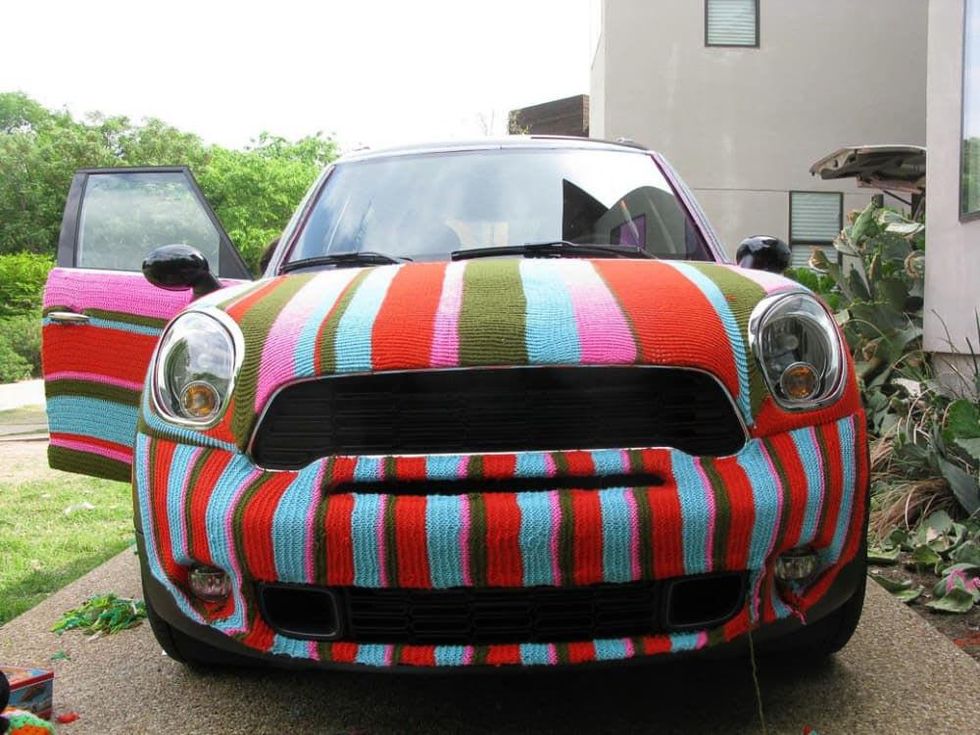
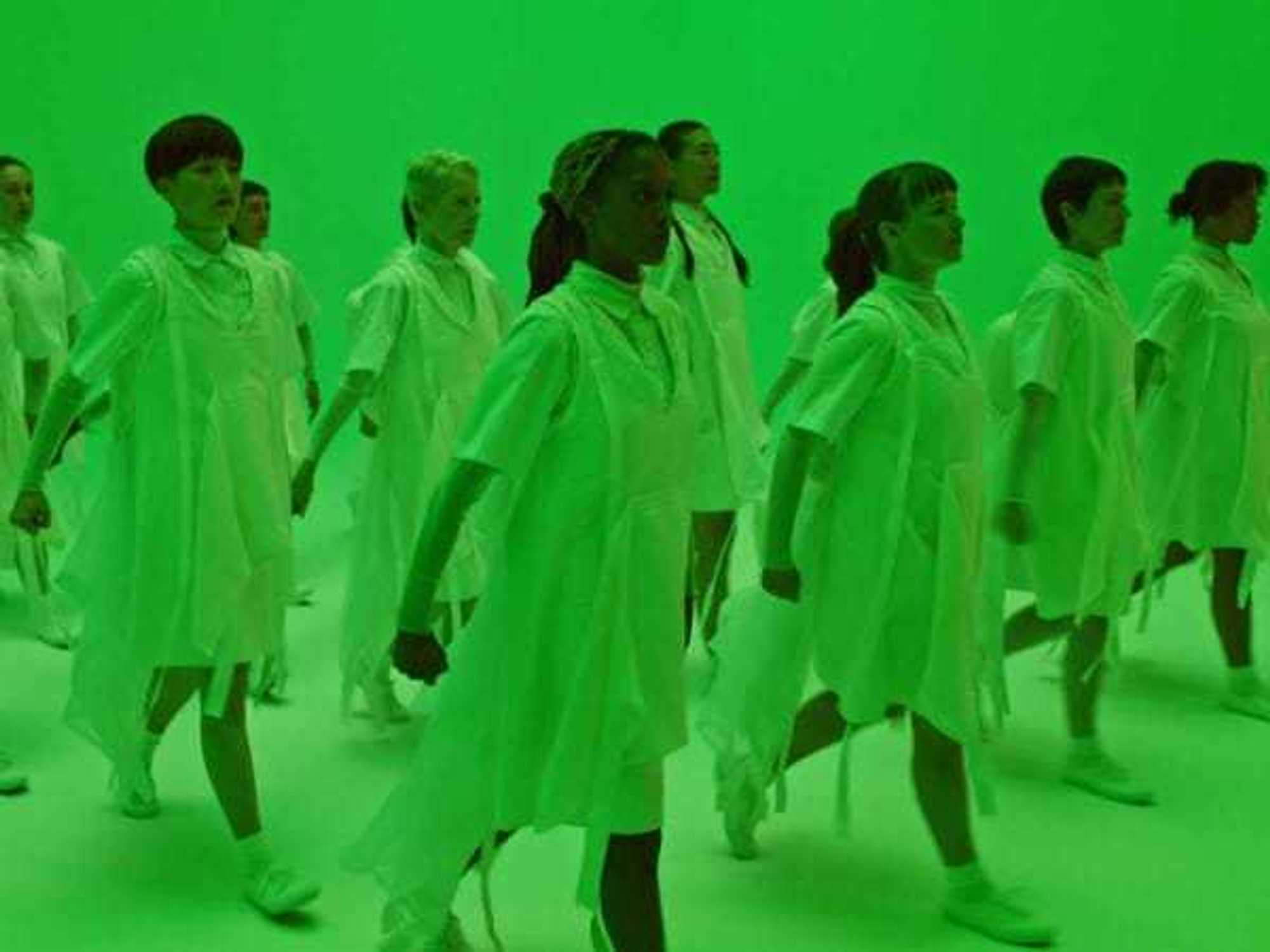
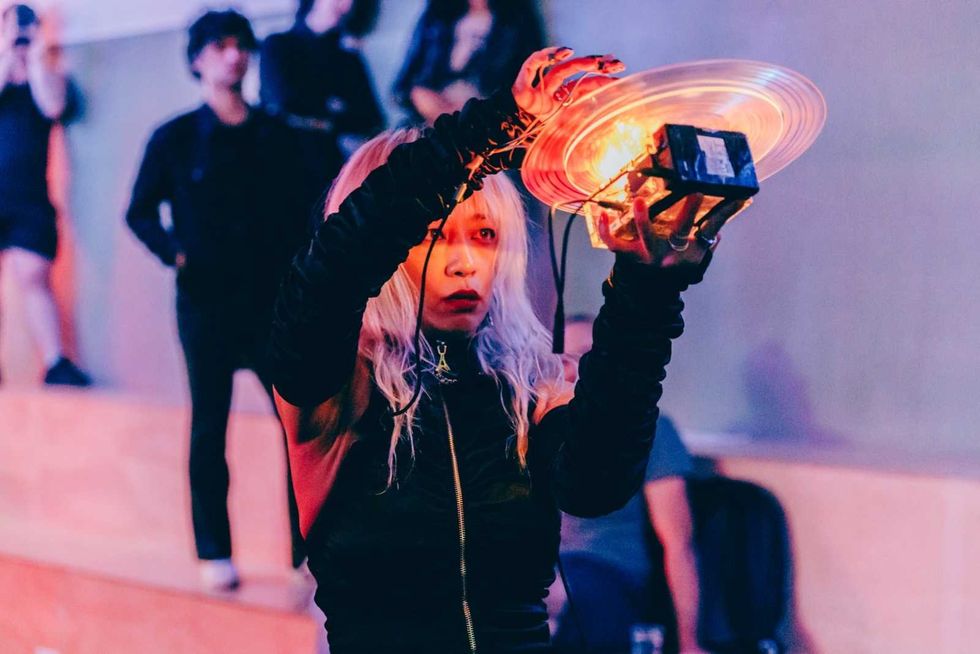 Austin artists Mark Flood and Evcksun will bring their interdisciplinary collaboration to the Fusebox Festival in April. Photo courtesy Fusebox Festival
Austin artists Mark Flood and Evcksun will bring their interdisciplinary collaboration to the Fusebox Festival in April. Photo courtesy Fusebox Festival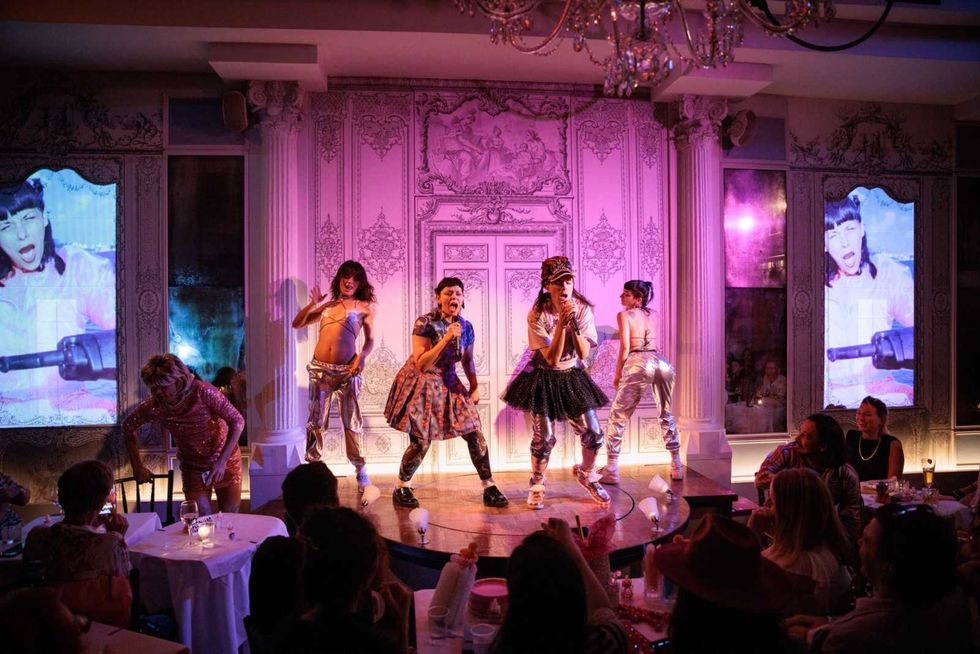 Novelitas de Ninas are a feminist musical soap opera performance appearing at the Fusebox Festival.Photo by Walter Wlodarczyk
Novelitas de Ninas are a feminist musical soap opera performance appearing at the Fusebox Festival.Photo by Walter Wlodarczyk